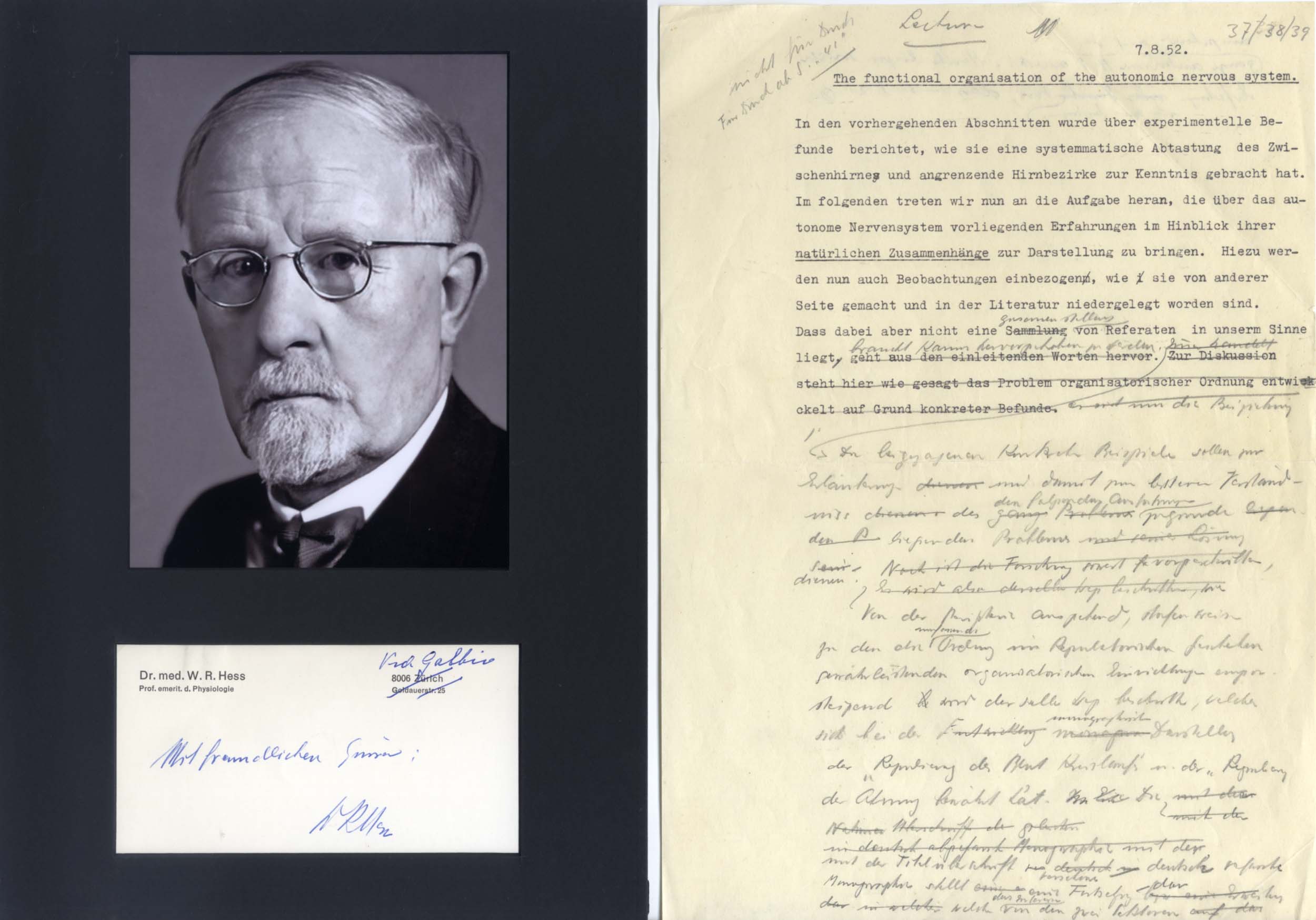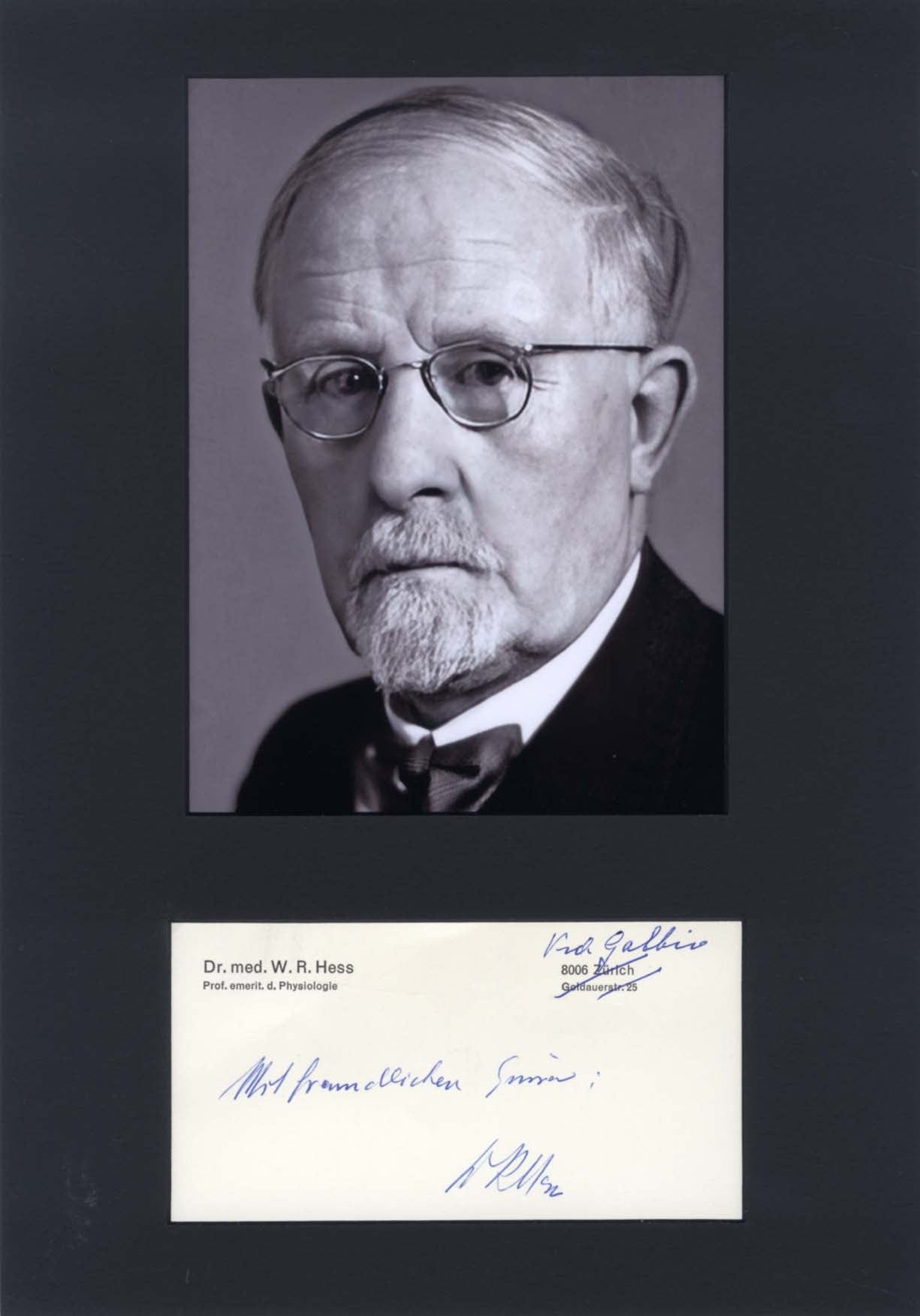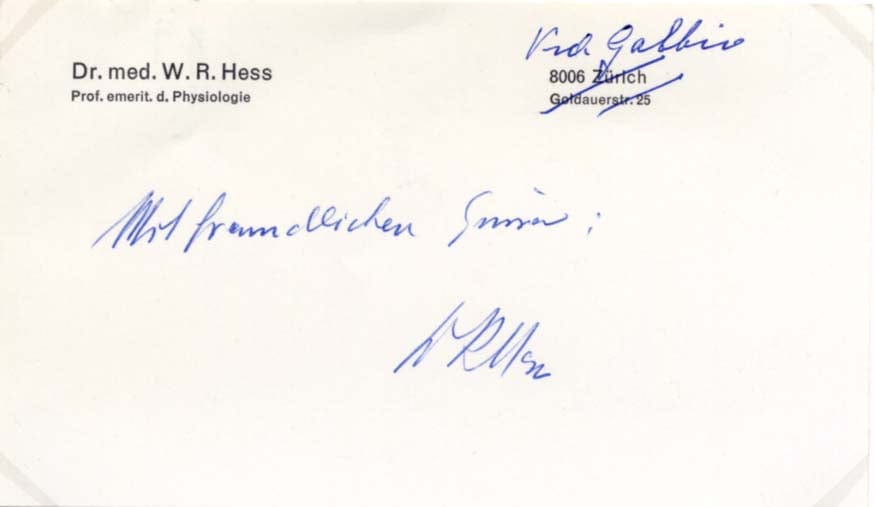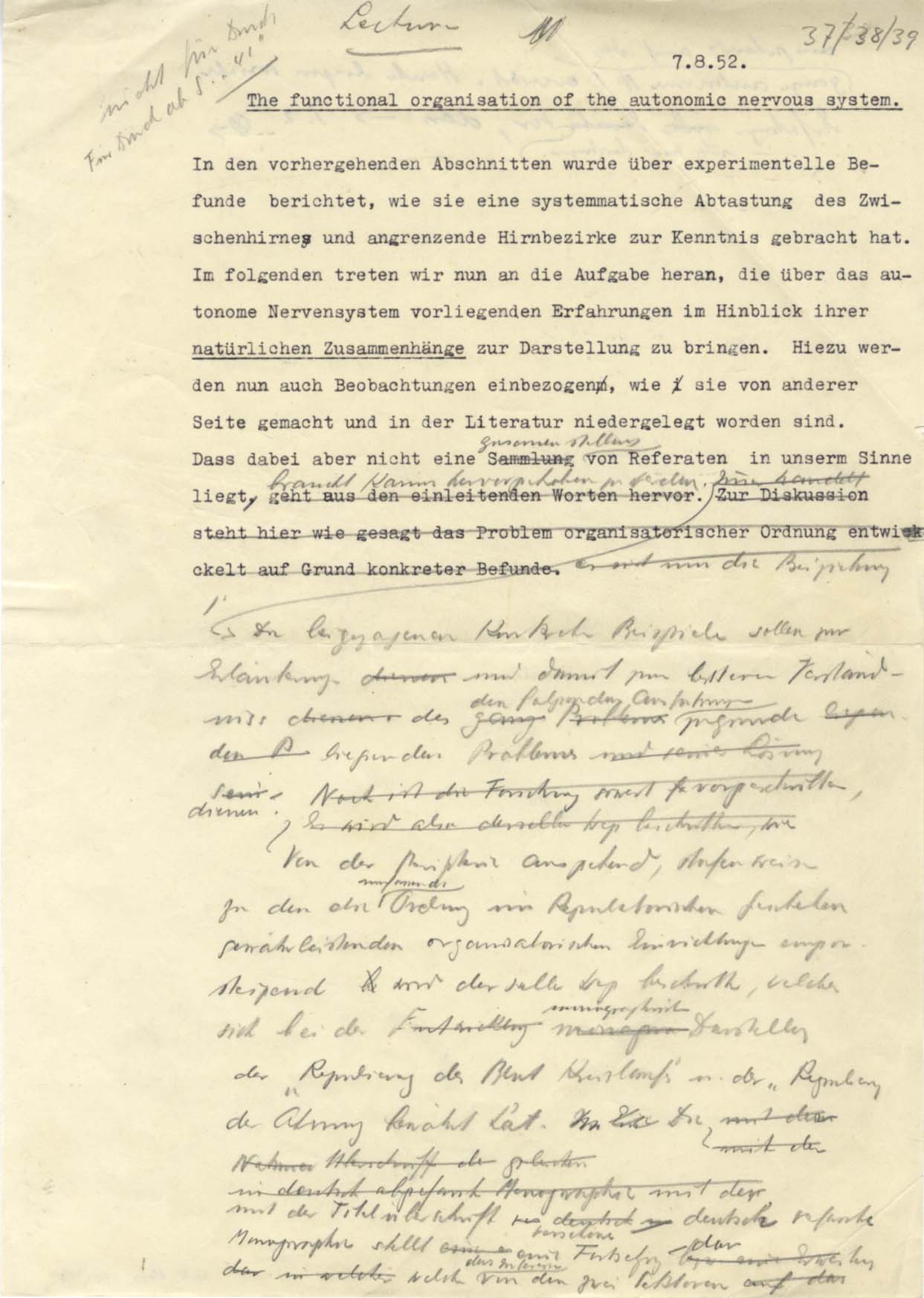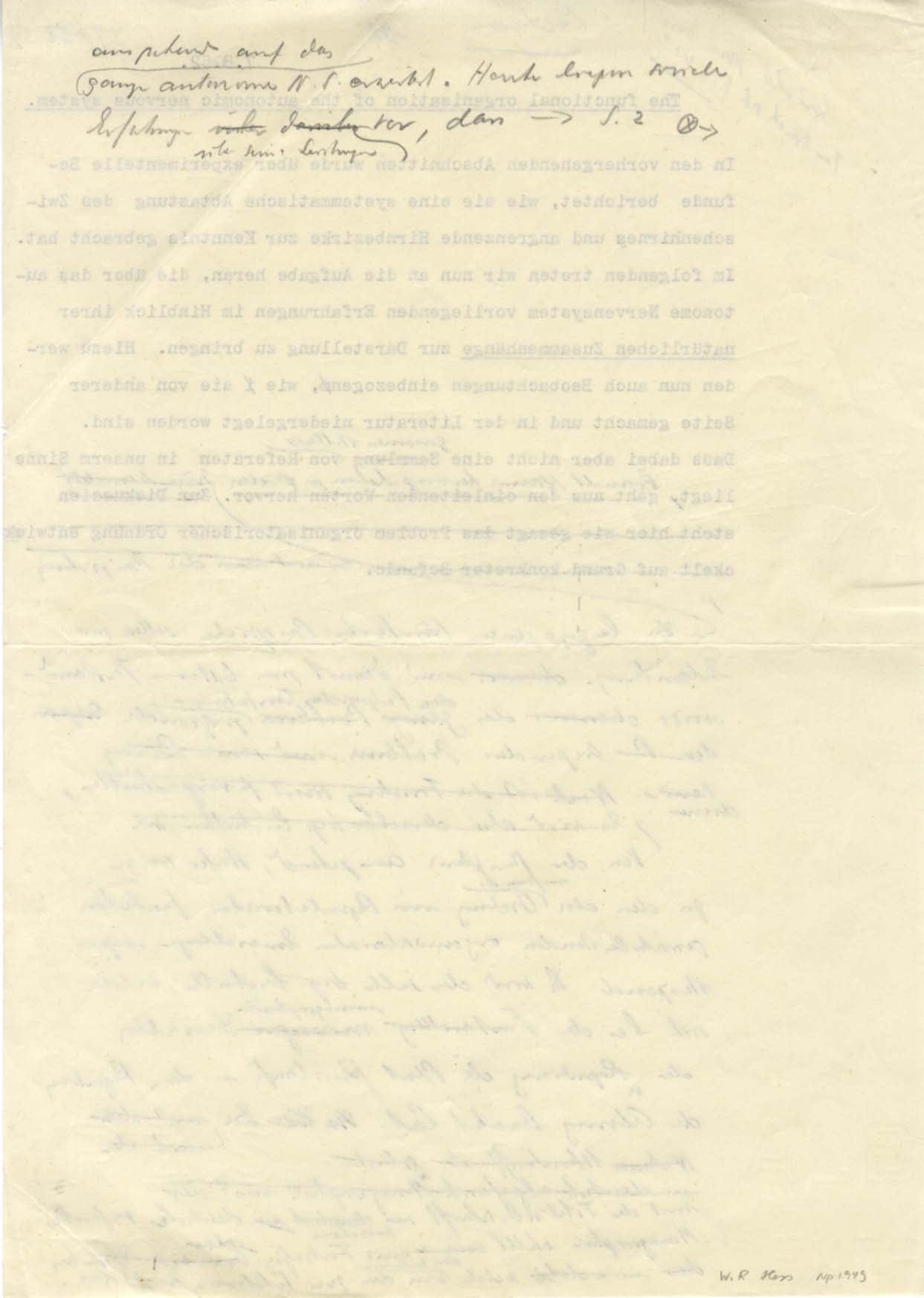Descripción
Typed scientific text with extensive handwritten additions, 1 1/5 pages (both sides), 8,25 x 11,75 inch, title in English & text in German, with the title "The functional organisation of the autonomic nervous system", written in pencil - with numerous corrections, with very mild signs of wear - in nearly very fine condition.
In parts:
"In den vorherigen Abschnitten wurde über experimentielle Befunde berichtet, wie sie eine systemmatische Abtastung des Zwischenhirnes und angrenzende Hirnbezirke zur Kenntnis gebracht hat. Im folgenden treten wir nun an die Aufgabe heran, die über das autonome Nervensystem vorliegenden Erfahrungen im Hinblick ihrer natürlichen Zusammenhänge zur Darstellung zu bringen. [...]"
Translated:
"In the previous sections, experimental findings were reported, as revealed by a systematic scanning of the diencephalon and adjacent brain areas. In the following we now approach the task of presenting the experiences available about the autonomic nervous system with regard to their natural connections. [...]"
Accompanied by a signed card, 5,75 x 3,25 inch, signed in blue ballpoint ink "Mit freundlichen Grüssen - W. R. Hess", attractively mounted (removable) for fine display with a photograph, shows Walter Rudolf Hess in a close-up portrait (altogether 8,25 x 11,75 inch), in very fine condition.
Más información sobre la persona
Profession:
(1881-1973) Swiss physiologist who won the Nobel Prize in Physiology or Medicine in 1949
Year of Birth: 1881
Certificado de autenticidad
Todas nuestras piezas se venden con un certificado de autenticidad. Si una pieza resulta estar equivocada o si no le gusta un autógrafo, recuperará su dinero durante toda la vida.
Pago y seguridad
Su información de pago se procesa de forma segura. No almacenamos los detalles de la tarjeta de crédito ni tenemos acceso a la información de su tarjeta de crédito.

